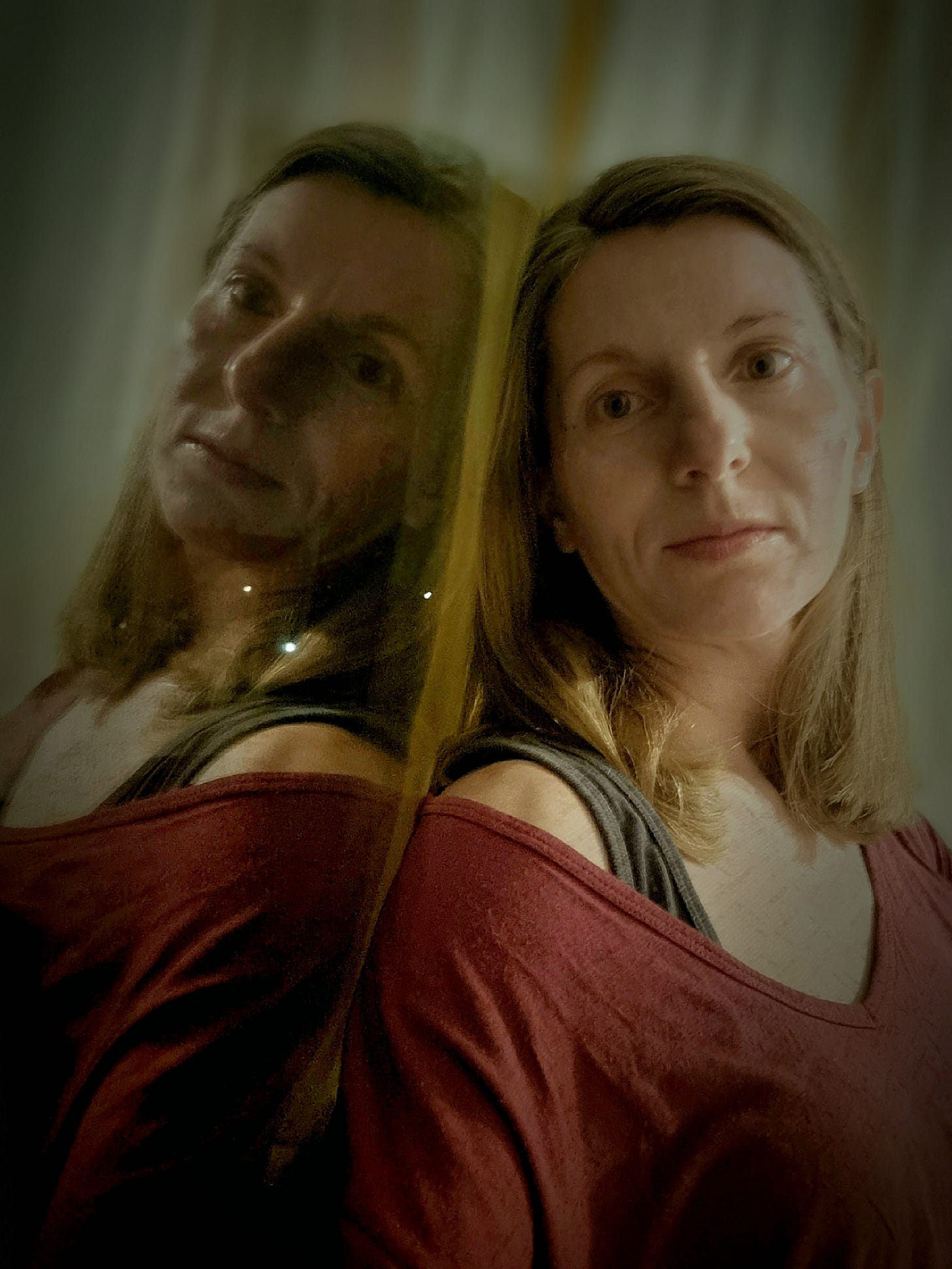Instead of New Year's resolutions, I offer you banitza
In the last hours of 2024, as I prepare the food and set the table, I think of the cultural layers I carry with me, 20 years after leaving my childhood country and settling in the UK. Every Christmas, New Year, and Easter, I open an old notebook my mother gave me when I first left home, where handwritten recipes of traditional Bulgarian dishes and desserts nestle between the pages like a spell, keeping me safe and close to my relatives no matter how far I go. The notebook has hard covers, and on the front, there’s a year branded in gold: 1999.
Although by now I know how to prepare all the ritual bread, sarmi, banitza, koluzak, and Christmas cookies, I still open the recipe book on every celebration, caressing the paper with my palms, imagining my fingers lacing with my mother’s, crossing space and time, and feeling close again. When we moved to our house a few years ago, our neighbours gave us a bowl of cherries from their garden, and to show gratitude for their warm welcome, I made Bulgarian yoghurt. When we had new neighbours, I offered them cookies I had baked. When the Turkish shop manager gave me some fresh yeast from his bakery on Easter, I then brough him and his staff some kozunak. Those seemingly small gestures carry a profound truth about ourselves and our cultures, and bring us closer where politics and borders divide people.
On the first day of the year, we bake a special pastry with eggs and feta cheese, called banitza. In between the pastry layers, we place lucky wishes, like the ones you find in fortune cookies: a wish written on a piece of paper, covered in foil. Everyone chooses a piece of banitza and digs between the pastry sheets to find their lucky wish, believing the New Year will bring them luck and whatever wish it holds. Among the traditional wishes, there are things like health, happiness, love, adventure, abundance, a never-ending fairy tale, knowledge, and a lucky coin symbolising good fortune. I remember, as a child, I never liked it when my lucky wish was health. It was a given, I used to think.
I never take health for granted anymore. The past year was quite rough for me, affecting my physical and mental health. Nowadays, I wish health for myself, my family, and all my friends. I write my lucky wishes on handmade Christmas cards, in messages, and during calls and conversations. I wish health wholeheartedly, and I know good health is not a boring lucky wish – it’s essential for anything else we want to accomplish.
Perching on the edge of 2024, when everyone seems to be summarising the passing year and looking with hope towards 2025, I hesitate. I’m not the end-of-year reflections and New Year’s resolutions type of person. Not because I don’t find value in the act of reflecting back and feeling gratitude – quite the opposite. (Although, I do find the word “resolutions” problematic, as it requires firm decisions, doesn’t allow flexibility and adaptability, and quite often sets you up for failure.) I do it throughout the year as I feel the need to look back on something that has happened and see how the experience has shaped me and transformed me into the person I have become.
Yet, if you want me to give my 2024 a word or an expression, it would be “taking up space”. Living with sight loss, I’ve learned that it’s not for me to shy away from life, to change, or to take up less space. I am still the same determined, independent woman I’ve been all my life, full of creative ideas and joy. Tonight, instead of New Year’s resolutions, I’ll be setting my small and humble intentions. Not for the whole year, but for the coming days. Intentions that feel right today and may not feel right tomorrow. I’ll set an intention to be gentle with myself, to expand and take up even more space, to continue to be curious, empathetic, and to learn and grow in small steps. Because each step today will shape the person I become tomorrow.
Have a meaningful, peaceful, and fulfilling New Year! And don’t be harsh on yourself.
Much love to you all,
Nataliya x




Just stumbled upon your profile and as a fellow Bulgarian (loving abroad since childhood) I can so relate to the sentiment that these rituals hold for me. 🩷 I’ve immediately added your novel “Four Minutes” to my to read list, and look forward to more of your posts!
Поздрави,
Тонислава
Thank you for sharing, Tonislava, I'm glad it resonated. Hope you enjoy Four Minutes. 🩷